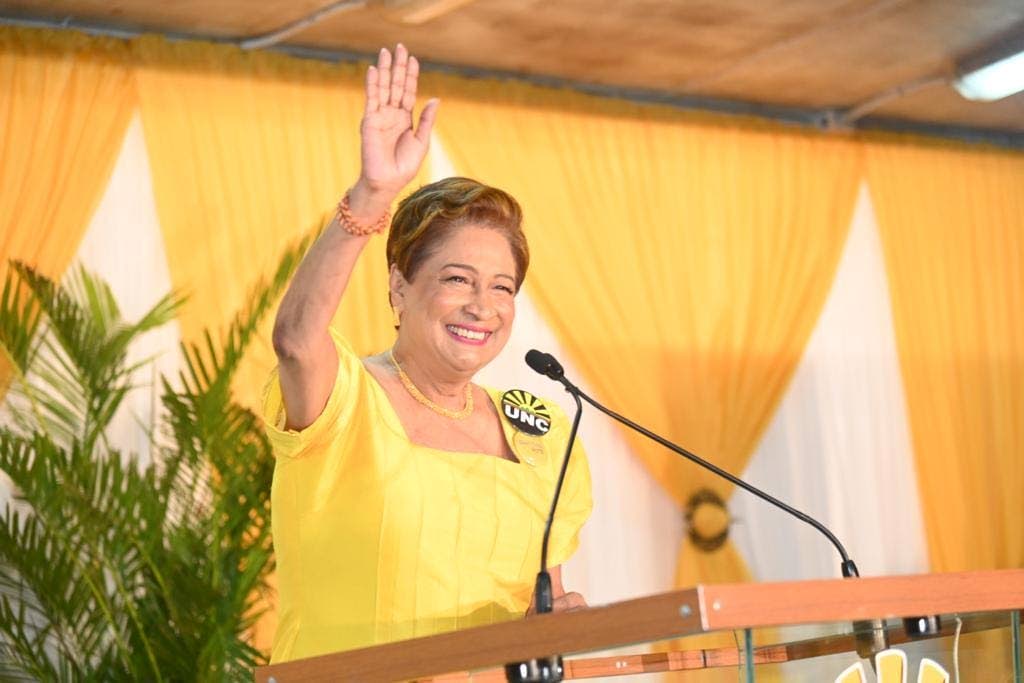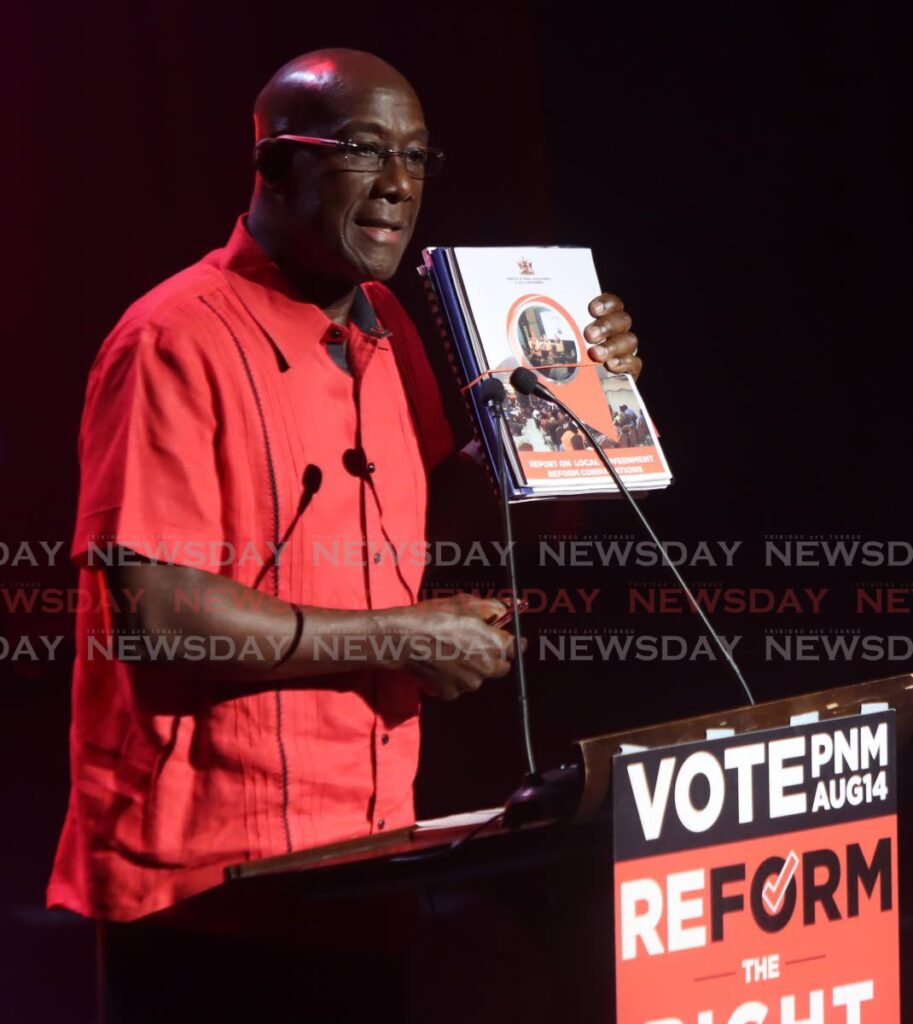Public: Education needed about role of local government

Members of the public said a lack of knowledge and education about the electoral process and disenchantment with party politics were the two main reasons for the low voter turnout for Monday’s local government elections.
On Tuesday, a statement from the Elections and Boundaries Commission (EBC) said Monday's election turnout was just 30.34 per cent. It was less than the turnout in the last local polls held in 2019 and was also the lowest turnout in 43 years, according to figures in the EBC report on the 2019 election.
“The total votes cast were 331,300 with 996 rejected ballots.”
The statement said the UNC won 173,961 votes to the PNM’s 130,868.
Newsday invited comment on the issue from people on social media.
Photographer and videographer Denith McNicolls, who didn't vote in the election, said, “The government and the Opposition both have shown that they don't care, and whoever I vote for has not made any significant difference in any local government affairs. I have found better uses for both my time, and my finger.”
Eatahfood managing director Baidawi Assing, who didn’t vote in the election, said people were disillusioned with the political system.
“Politics in this country has long been run on symbolism fuelled by exploiting racist and tribal anxieties with little to no real challenge to the status quo. People would vote for a real grassroots movement that was heavily invested in community organising and not political representation.”
Post production technician Kezia Watson said she believed there was a lack of understanding of the significance of local government elections.
“Over the years, political parties have placed more energy and emphasis on general elections and the bid to be PM (prime minister). Even in this year's election, the opposition based its campaign on issues that are more suited to general elections, essentially conflating the two.
“I think people think regardless of who they vote for, central government controls the finances and the country. So who is PM is more important than which political party controls the different borough corporations. I also believe people are fed up with the two main political parties, and think that no matter who they vote for at local government elections, nothing is going to change in the country. So there's little to no desire to participate in the electoral process.”
Watson said proper education campaigns were needed on the roles of central and local government, as well as local government reform, property tax, how regional corporations were funded and how councillors were supposed to use funding to help burgesses, among others.
“This needs to be done, not just in schools, because social media shows that there is a large number of grown adults who are ignorant on the subject.”
'People locked off the manimar'
Clerk Kershelle said there were two major factors involved in the low voter turnout. She said the first was a severe ignorance of how any systems worked in TT.
“This starts at home and continues at school. At home, very few parents take the time to make sure children know what's happening and, at school, most teachers just want to finish the syllabus. So we end up with a generation of persons who are either going through the motions or are convinced that the system is broken beyond repair.”
A second factor, she said, was political fatigue, as people were tired of the picong and unfulfilled promises.
“It's exhausting. Even though people are ignorant, they know they want better for themselves and TT. The major political parties aren't doing that for them. I don’t think much can be done. I think adults have locked off from the manimar that is. The damage is done.”
Kershelle said education was key to getting people to care about central and local government.
“I would encourage the Education Ministry and everyone else to train our next generation to analyse better. Give them the information needed to choose adequately. The school curriculum needs to be formatted so that children understand the importance of elections and holding their representatives accountable to the teeth which is what we are missing right now.
"That's our only hope.
“Yes we can try to do it with adults but, at this point, the political parties are going to have to take that up. The die-hards will listen to their leaders and everyone who genuinely wants to be educated will fall in.”

Gender and human rights advocate CP Daniel said the low voter turnout could be owing to people perceiving it as a non-critical election, as well as a lack of proper understanding of the electoral process.
“This indicates a disengaged electorate that doesn't fully grasp the significance of local government and its effects on their lives. Additionally, there's a prevalent belief, particularly among the youth, that their individual vote won't bring about a noticeable change.
“To address this, it's essential to consistently engage the population through both traditional and social media, as well as in schools. These efforts should focus on educating people about the election process, the value of voting, and a visual step by step on how to vote. Demystifying the process and bridging the knowledge gap is crucial to having a more engaged electorate who feel empowered to vote.”
Daniel said the main point was, outside of an election period, there was little to no engagement from the EBC or other bodies on the electoral process and the difference and importance of the parliamentary, Tobago House of Assembly (THA) or local government elections.
'Embarrassed by behaviour of politicians'
Digital marketer and content creator Marsha said she didn’t vote in this year’s elections and didn’t see herself voting in the future.
“Don’t get me wrong, I consider myself one of the most patriotic people I know, I want the best for my country. I simply don’t believe at this time there is any vote I can cast that will ensure movement in a positive direction for my nation.
"The state of affairs in our country has caused me to question my future here but never my love for this country. The selfishness, misconduct and often immaturity of our government officials upsets me to my core.
"Embarrassed is an understatement.
"And also the choosing of the lesser of two evils does not feel productive to me.
"I did not vote because it did not feel like the patriotic thing to do. And I will not vote until it does.
“I am aware that this takes away my right to complain or contribute to political discourse and I gladly accept that consequence as it was never my intention. My intention is to move ahead of the discourse completely and channel my resources through community leaders, reputable organisations and people in need as they grow.”
Entrepreneur Keston Gomez, who voted in the election, said the low turnout was because people did not understand the importance of local government.
“I think it’s because they weren’t paying attention when it was being taught in schools. To be frank, I’m not sure why, but I feel especially with the local campaigns and how no one but the PNM actually talked about local government, people just voted for mass changes not actual local changes. Local government elections was the time to talk about things like property tax and road maintenance not “load up the ‘matic.”
Freelance project manager Tonya Johnson said there was not enough knowledge about what local government’s purpose, goals or objectives were in relation to serving the community.
“On top of that, most of us don’t even see our MPs. They don’t communicate with us to ask us what we need or what improvements we want to see. They don’t engage meaningfully to use their resources to help build actual community, they basically just exist in an office. There’s no accountability or demands made for them to do any part of their job because most of us don’t even know what that job really is.”

Comments
"Public: Education needed about role of local government"